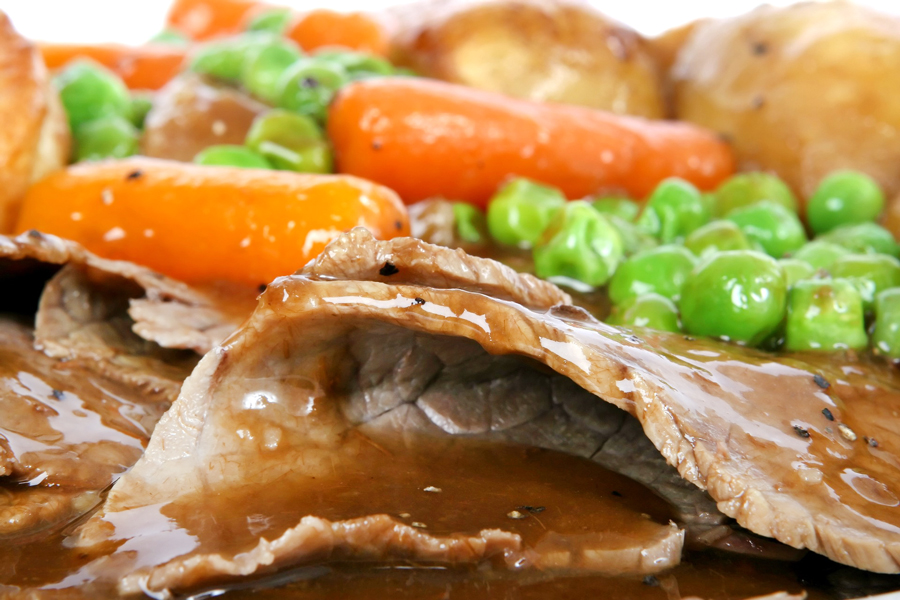Lamb and beef back on the menu for climate-conscious consumers
7th December 2020
Saturday Kitchen host Matt Tebbutt is encouraging people hosting smaller Christmas gatherings to consider a piece of lamb or beef as an alternative to a turkey this year
Climate-conscious cooks can serve up a joint of beef or lamb this Christmas with a clear conscience, Saturday Kitchen host Matt Tebbutt has said as millions of consumers prepare for smaller gatherings during the festive season.
His comments came as a new study of Welsh farms revealed that the carbon footprint of responsibly-produced red meat is lower than previously thought.
It found that beef cattle were responsible for a net 11-16kg of CO2 equivalent emissions per kilo on average, whereas previous studies have suggested a global average of around 37kg of CO2 equivalent emissions per kilo.
The Bangor study showed that sheep and lambs were associated with 10-13kg of CO2 equivalent emissions, which again places Wales towards the lowest end of studies conducted elsewhere in the world.
The new research suggests that carbon sequestration – the process by which carbon dioxide is naturally absorbed from the atmosphere by soil, plants and trees – can be promoted by farmers’ land management techniques, which can have a significant positive effect on net emissions.
Hill farms examined in the study had a lower than expected environmental impact, suggesting that hilly and rainy locations like Wales, where 81% of farmland is permanent grassland, are among the most sustainable habitats in which to produce meat.
Dr Prysor Williams, senior lecturer in environmental management at Bangor University, said:
“The Bangor University study uses the latest internationally-approved methods to study the emissions and carbon sequestration, giving us a valuable insight into what Welsh farms are already doing well in terms of sustainability, and where further improvements can be made.
“The carbon footprints of many of these selected Welsh farms are amongst the lowest reported for other lamb and beef producing countries. Whilst we recognise that there are difficulties in comparing studies due to differences in the methods to calculate the footprints, our results indicate that Welsh lamb and beef producers have the potential to be some of the most sustainable farming systems globally.”
Katie-Rose Davies, Welsh beef and sheep farmer, said:
“As the next generation of farmers, we want to make sure that the industry is sustainable long into the future. That’s why we use traditional farming, grass and rainwater to rear animals to minimise pressure on natural resources, as well as special grazing techniques to encourage the habitat of rare species, such as Golden Plovers. We also maintain a large area of peatland which is vital for carbon storage and one of the ways we contribute to mitigating climate change.”
Gwyn Howells, Chief Executive of Hybu Cig Cymru – Meat Promotion Wales (HCC) , said:
“The climate crisis we face is urgent in nature and global in scale. The answer is not to stop eating red meat, but to choose sustainably-produced lamb and beef.
“Wales is already leading the way in helping the environment, but we know there’s a lot more to do to further the positive contribution that Welsh livestock agriculture can make towards meeting the climate challenge. That’s why we’re working to reduce our overall agriculture emissions by 7.5% in the coming years, in order to help Wales reach Net Zero by 2050.”


